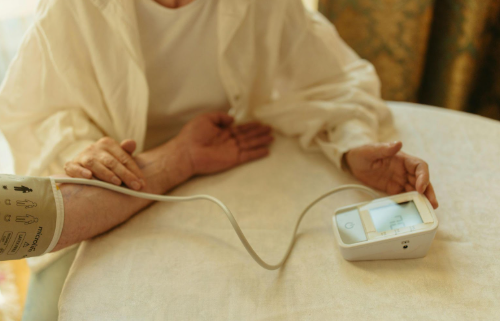Palliative Care at Home: Enhancing Quality of Life through Compassionate Services

Palliative care is a specialized medical approach that aims to improve the quality of life for people suffering from serious illnesses. This compassionate discipline prioritizes symptom relief, effective pain management, and emotional support for patients and their families.
The Importance of Palliative Care
Palliative care is more than just treating physical symptoms. The team works together to address practical concerns and offers support with counseling.
The goal is to give patients the best possible quality of life until the end of their journey. Additionally, it can reduce the need for hospital visits, offering a more affordable and comfortable option for people who prefer to receive care in their own homes.
How Does Home Palliative Care Enhance Living Well?
The essence of palliative care is to provide effective treatment in the comfort of your own home, where you can relax and enjoy simple pleasures like a cup of tea in your favorite armchair. This care is intricately designed to align with your unique priorities. The process begins with developing individualized care plans crafted through a comprehensive assessment of your unique circumstances.
This assessment includes a deep understanding of the medical aspects of your condition along with your personal preferences, values, and cultural background. The palliative care team, comprising physicians, nurses, social workers, and other specialists, collaborates closely to gather this nuanced information.
Once the patient's needs and preferences are thoroughly understood, the team collaborates with the patient and their family to formulate a care plan tailored to their situation. This personalized approach embraces the patient's unique identity and creates an environment of comfort, dignity, and support.
Palliative Care Approaches
There are several approaches involved in creating tailored strategies. Some of them include:
- Tailored Pain Management:
The first priority of this care is to ensure effective relief from pain. Professionals give personalized approaches to reducing pain by employing diverse methods and medications.
- Comprehensive Symptom Relief:
Beyond addressing pain, it focuses on mitigating symptoms like nausea, fatigue, and shortness of breath. This approach aims to improve overall comfort.
- Social and Spiritual Well-Being:
Social and spiritual well-being is the state of being mentally and emotionally balanced. It is having a sense of belonging and feeling valued by others. On the other hand, spiritual well-being relates to an individual's connection with their inner self, purpose, and meaning in life.
- Challenges and Solutions:
While home palliative care brings undeniable benefits to patients, the journey can also involve challenges for family members who step up as caregivers. Recognizing and addressing these challenges is crucial to ensuring sustainable, holistic care for all involved.
- Caregiver Support: It's important to take care of caregivers to ensure that they don't get burned out. Providing support services, taking breaks, and offering educational resources can make things easier for patients and their caregivers.
- Access to Resources:
Having the right resources is important for providing good palliative care at home. This includes having the right medications and the necessary medical equipment. Working with community organizations and improving healthcare facilities can help address these challenges so that patients can get the full range of care in their own homes.
- Communication and Co-Ordination: Clear communication systems for regular updates, transparent care plans, and actively involving patients in decision-making can greatly improve the overall care experience. This helps information flow smoothly between healthcare providers, patients, and their families, creating a collaborative and supportive environment for everyone involved.
Essential Palliative Care Equipment
Palliative care involves providing special equipment to help individuals feel more comfortable and independent while living at home. These items include shower chairs, commodes, syringe drivers, and pressure-relieving devices. If patients need any of these, the palliative care team or an occupational therapist can help them get what they need. These tools make the process easier for both patients and caregivers.
Additionally, service providers are available to help family caregivers with more complex care tasks, such as tubes, wounds, or injections. Overall, palliative care aims to ensure individuals are as comfortable and independent as possible during this challenging time by providing them with the right equipment and support.
When Should One Consider Palliative Care?
Determining the optimal timing for initiating palliative care is a highly individualized decision that cannot be reduced to a one-size-fits-all approach. At the same time, some people may choose to explore palliative care options immediately after receiving a serious diagnosis.
Embracing palliative care soon after receiving a serious diagnosis can be extremely helpful. It allows individuals and their families to plan for the challenges ahead proactively. By starting the conversation and seeking care early, patients can gain comprehensive support that includes medical considerations and emotional, social, and practical aspects.
Engaging in open communication with a healthcare provider is crucial for making well-informed decisions. This collaborative approach helps determine whether palliative care is a recommended option.
Experience the highest quality care for your loved ones with our Five-Star Home Health Care Agency. We're dedicated to providing compassionate and personalized care, prioritizing comfort, dignity, and overall well-being. Contact us today to explore more. Your family's peace of mind starts here.










